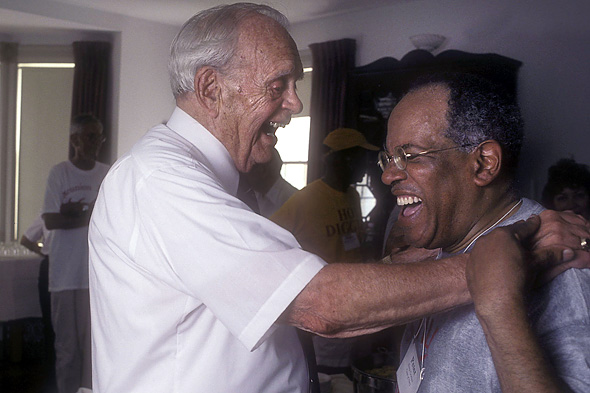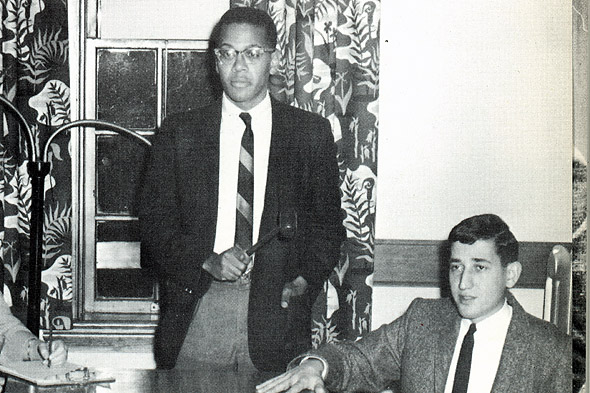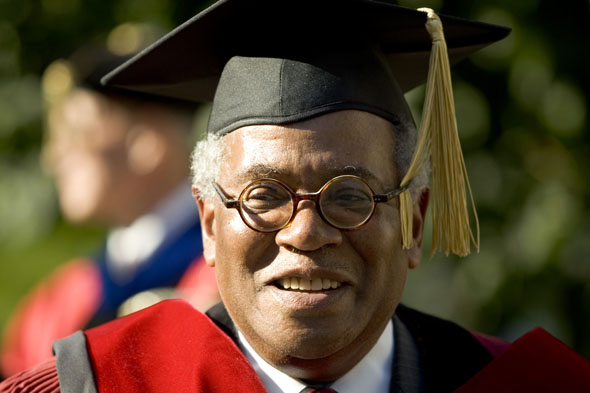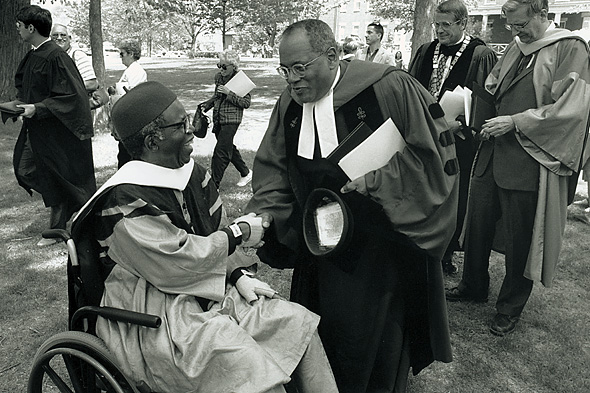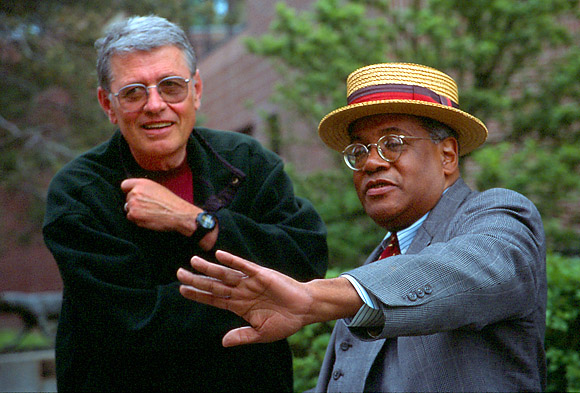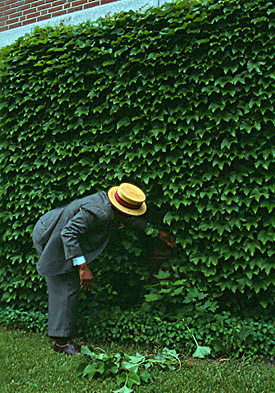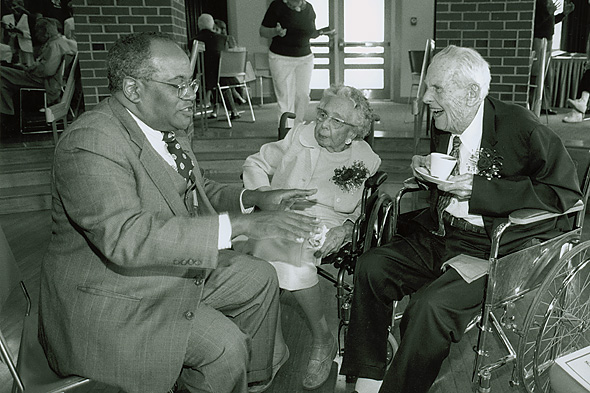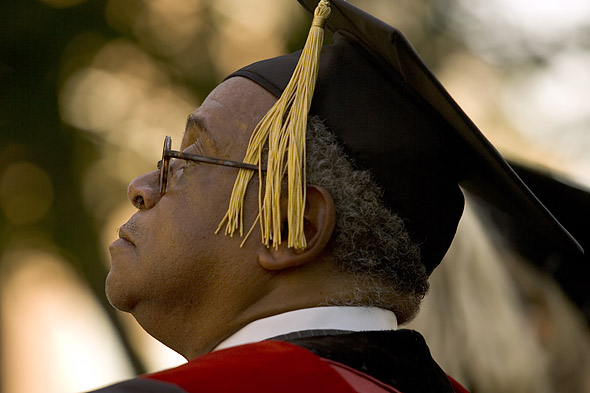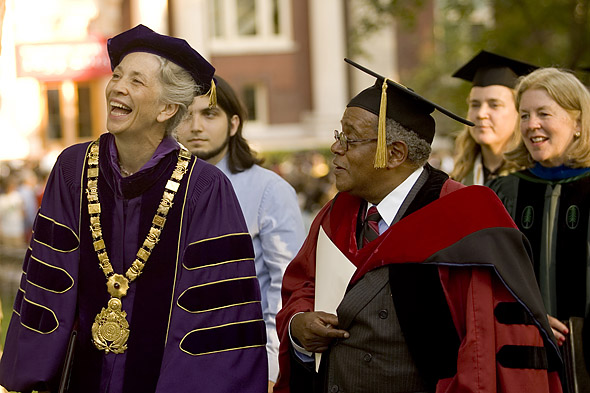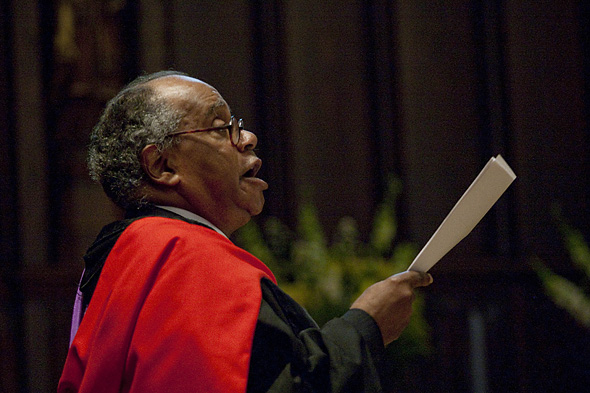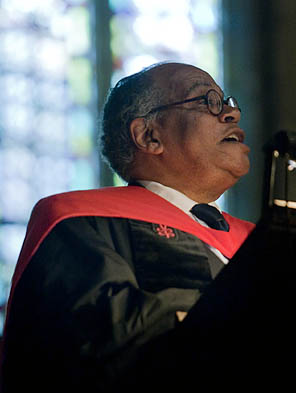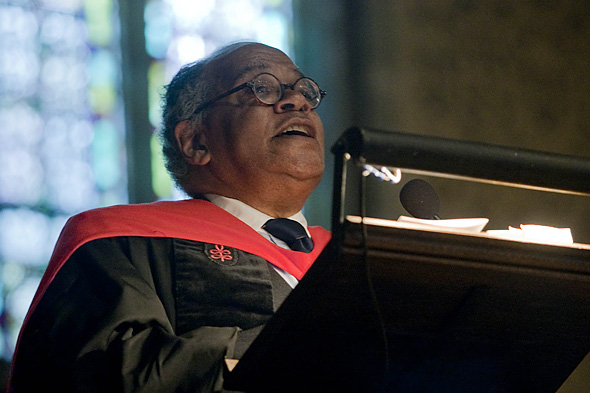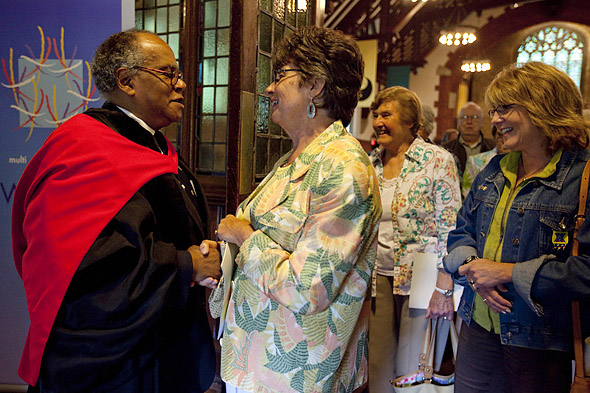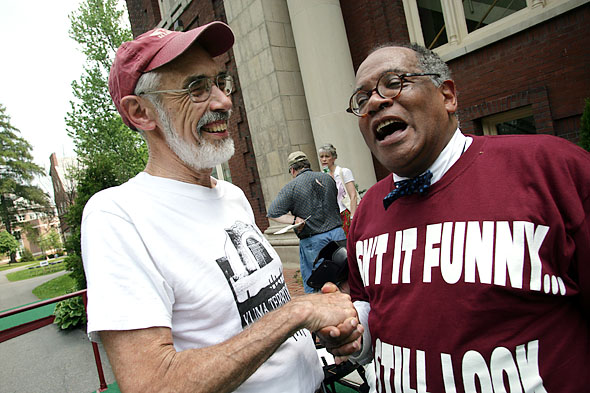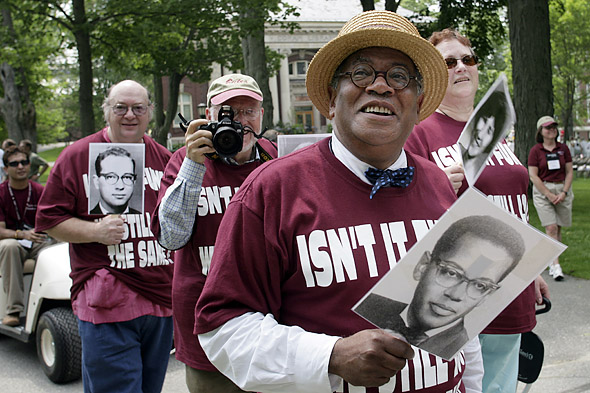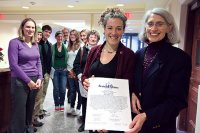The Rev. Professor Peter J. Gomes ’65, D.D. ’96, Plummer Professor of Christian Morals and Pusey Minister in the Memorial Church at Harvard University, died Feb. 28, 2011, at Massachusetts General Hospital of complications from a stroke he suffered in December. He was 68 years old.
March 4 update [2]: The funeral for the Rev. Gomes will be held at 11 a.m. Tuesday, March 8, at his hometown church, the First Baptist Church of Plymouth, Mass.
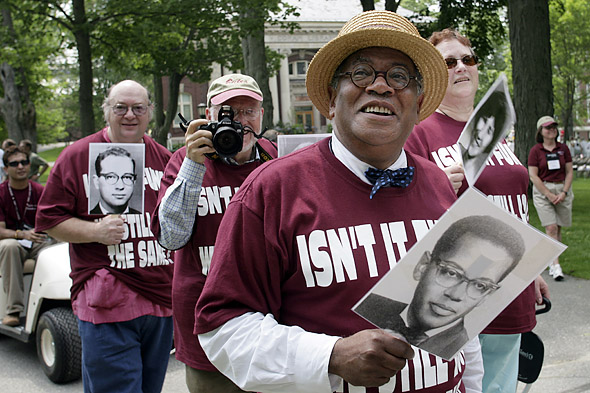
March 4 update: At Bates, “A Time to Remember and Give Thanks for the Completed Life of the Rev. Peter Gomes ’65,” noon to 12:30 p.m. Monday, March 7, in the Chapel. A College-wide memorial service is being planned for a future date.
- Harvard Crimson story of the March 3 service of Compline in the Memorial Church that concluded the day’s silent vigil
- Sun Journal story including insights by Bill Hiss ’66 and President Hansen
- Obituaries in The New York Times, The Boston Globe and Associated Press
- “Remembering Reverend Gomes” in the New Yorker by Henry Louise Gates Jr., L.H.D ’94
- Morley Safer of CBS News remembers Gomes with a repeat of this 1997 “60 Minutes” interview
- An alum’s audio slide show from Reunion 2010 featuring audio of Gomes’ Alumni Memorial Service sermon, his last public Bates appearance
- Video of his homily at the memorial service for Milton Lindholm ’35 in March 2010
- Video of his 2005 Sesquicentennial address at Bates
- “Degrees of Separation” in Bates Magazine about his 2005 Sesquicentennial visit
- “A Stroll with Gomes” in Bates Magazine about his 1998 visit to receive the Benjamin Mays Medal
“The Rev. Gomes was, among many things, a remarkable preacher, dedicated scholar and accomplished author,” President Elaine Tuttle Hansen said today in her announcement to the Bates community.
She pointed specifically to the words that conferred an Bates honorary doctor of divinity degree on Gomes in 1996: “You have, in the power of thoughtful and eloquent expression, from pulpits and from the public yard, given testimony to principled action, to moral authority, to the inspiration of belief, and to the charity of human worth.”
“I now have an unambiguous vocation.”
Considered one of America’s most distinguished preachers by the 1970s (Time singled him out as one of “seven star preachers” in December 1979), Gomes became a prominent spiritual voice against intolerance after he announced in 1991 that he was gay.
“I now have an unambiguous vocation — a mission — to address the religious causes and roots of homophobia,” he told The Washington Post months later. “I will devote the rest of my life to addressing the ‘religious case’ against gays.”
Pursuit of that mission would include publication of the national best-selling books The Good Book: Reading the Bible with Heart and Mind and Sermons: Biblical Wisdom for Daily Living in 2002, even as his writing and scholarship continued to extend into wider areas, noted The New York Times, such as early American religions, Elizabethan Puritanism, church music and the African-American experience.
“Gomesie,” as he was known to his Bates contemporaries, sustained a particularly intense and loving relationship with his alma mater and with Bates people, especially his classmates and contemporaries, whom he buoyed during his many public moments on the Bates campus.
In the video below, Gomes delivers a rhetorical romp through Bates history and culture in his Sesquicentennial address in 2005:
In 1998, he told a Reunion audience that “except for my parents, I owe everything valuable, precious and honorable to Bates…. My ultimate epitaph should be, ‘I went to Bates.'”
In 2002, he offered remarks to a gathering of Bates volunteers, suggesting that “despite all of the sentimentality…most of us are loyal to Bates not because of the past but because of the future. We are loyal to Bates because at some point in our past somebody invested in our future. That is what animates and unites us in our loyal service to the College.”
And the future of Bates, he said, “is really you. The future at Bates is always people — the fallible flesh of the human experience — and what an enormous capacity for good, for goodness, and for imagination we represent.”
A former Bates trustee who served on the board for more than two decades, Gomes received the Benjamin E. Mays Medal in 1998 and delivered the Sesquicentennial address in 2005. Last March, he delivered the homily at the memorial service for Milton Lindholm ’35, Ed.M. ’39, L.H.D. ’04.
In June, he delivered the sermon at the Alumni Memorial Service at his 45th Reunion, and he preached almost every summer at Ocean Park, a seaside retreat with historical connections to Bates’ founding by Freewill Baptist clergy.
Gomes “knew a lot about the religious history of Androscoggin County,” his longtime friend Bill Hill ’66 told the Sun Journal. “He encouraged many people like me to make commitments to understanding it…. Peter urged Bates students to get involved with the local community from his position on the board. He had a clear impact on the Harward Center for Community Partnerships.”
“What I’m interested in are those truths, values and commitments that make people respond to the ultimate hopes, ultimate goods.”
In a 1987 profile in Bates Magazine, Gomes told Peter Moore ’78 that his famous embrace of tradition, ritual and history reflected his belief that the Christian church is most alive when it is passing enduring “ideals and ideas” from one generation to the next. “What I’m interested in are those truths, values and commitments that make people respond to the ultimate hopes, ultimate goods,” he said.
In turn, Gomes added, the human battle between justice and oppression cannot be measured in our own moment. “If we did everything for our own time and our own generation, and expected to see results, nothing of worth would get done,” he said. “That’s why I’m in it for the long haul.”
